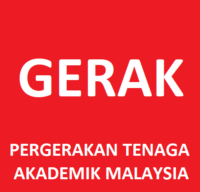Covid-19 Vaccines for Malaysia:
A Call for Transparency in Registration & Purchasing
December 28, 2020
With the exception of the People’s Republic of China and a few other countries like New Zealand, Vietnam, Cuba, Senegal, and Kerala state in India, which seem to have largely brought Covid-19 under control without the help of vaccines, most countries are struggling with succeeding waves of the pandemic and a likely global spread of a more contagious mutant of SARS-CoV-2.
Sources of Current Outbreaks
Unfortunately, since October 2020, a resurgence of clusters emerged from non-compliant returnees from abroad, and porous Sabah state border controls, exacerbated by lax enforcement of SOPs during the September 2020 Sabah state elections.
Senior Minister Ismail Sabri’s disastrous U-turn in going after undocumented migrants (after initially promising them sanctuary and no arrests and deportation during the pandemic) greatly complicated pandemic control efforts, in particular the crucially important contact tracing.
As generally younger daily-paid workers, more likely to ride out the milder symptoms of Covid-19 infection, they are now even less inclined to cooperate in testing and isolation, given the risks of arrest, detention and deportation.
We thus face the prospect of protracted and repeated seeding of the general population by the asymptomatic or mildly symptomatic, especially undocumented workers reluctant to seek treatment unless severely ill. (We should also note that active avoidance of contact tracing and testing involves others disinclined to divulge network contacts or contact history, e.g. underworld elements, drug and sexual encounters, etc).
As in many other countries, many Malaysians support efforts to secure vaccines to enhance pandemic control efforts.
Procuring Vaccines for Malaysia
The minister for Science, Technology, and Innovation Khairy Jamaluddin has announced commitments to purchasea basket of Covid-19 vaccines, and options for further orders[1].
Khairy Jamaluddin needs to be transparent about the technical rationales, criteria, and pricing for his ministry’s purchasing decisions. In particular, he needs to respond to very pertinent points raised by the Covid Research Centre (KL)[2], chest specialist Dr Jeyakumar Devaraj[3], and others, which include the following:
· there is currently little information on long-term safety beyond 2 months or on durability of protection, for all candidate or approved vaccines (any late-manifesting adverse effects will only be detected by conscientious follow-up surveillance, monitoring, and reporting systems). This is especially pertinent for novel mRNA vaccines, in comparison with the more familiar inactivated whole-virus vaccines with which we have decades of experience
· the decision by the UK’s Medicines and Healthcare Products Regulatory Agency (MHRA) to grant immunity to Pfizer from legal liability for late-manifesting adverse effects, and the Pfizer CEO declining to be among the early vaccinees (claiming selflessness in prioritising those more vulnerable, in contrast to some vaccine researchers who vaccinated themselves even before phase 1 human trials) perhaps reflects the true risk perception or assessment of the pharmaceutical corporations (whose profitable research and development work has been highly subsidised by governments for ‘vaccine nationalist’ reasons)
· stringent logistic requirements (deep-freeze or ultra-low temperature facilities) for the mass deployment of mRNA vaccines to under-served remote areas
· one additional advantage of the inactivated whole-virus vaccine is that the host immune response is mounted against a spectrum of antigens from the whole virus, rather than against a much more limited array of antigenic sub-components of say, the spike protein. This could provide some insurance against mutations, say in the coding sequences for the spike protein, which might render vaccines directed solely against the spike protein wholly or partially ineffective.
Beyond the immediate urgency of securing access to adequate quantities of safe, efficacious and affordable vaccines, the larger question of our continuing dependency on foreign vaccine developers, producers and suppliers remains unaddressed.
National Capabilities in Production of Medicines and Vaccines
Consider Cuba, a nation of 12 million citizens hamstrung by a 60-year economic blockade by the US, which has invested in human and material resources to become a biotech power-house: recombinant hepatitis B vaccines, synthetic polysaccharide vaccine against Haemophilus influenzae type B[4], CIMAvax vaccine against lung cancer[5], and innovative treatment of diabetic foot ulcers.
Cuba’s repeated offers of scientific collaboration in R&D, and joint ventures to position Malaysia as a regional production and distribution platform for Southeast Asia[6], have elicited only a lukewarm response. Tan Sri Dr Abu Bakar Suleiman, the retired Director General of Health, has shown greater foresight and entrepreneurial verve as chairman of Bioven[7], which is shepherding CIMAvax through US-FDA and UK phase 3 clinical trials[8].
It is not too late to make the necessary strategic decisions for a promising growth area (pharmaceuticals and vaccines) in the national and regional economies of the newly launched RCEP.
Chan Chee Khoon [email protected]
Chee Heng Leng [email protected]
Aliran
Citizens’ Health Initiative
Freedom
Kuala Lumpur & Selangor Chinese Assembly Hall (KLSCAH)
North South Initiative
Pengguna Pahang
Parti Sosialis Malaysia (PSM)
Pergerakan Tenaga Akademik Malaysia (GERAK)
Suara Rakyat Malaysia (SUARAM)
[1] Malaysia needs 90 to 120 days just to check Pfizer’s vaccine? Are you kidding DG? https://www.theedgemarkets.com/article/malaysia-needs-90-120-days-just-check-pfizers-vaccine-are-you-kidding-dg; Malaysia Reserves Option To Double Pfizer Vaccine Order https://codeblue.galencentre.org/2020/12/23/malaysia-reserves-option-to-double-pfizer-vaccine-order/#:~:text=By%20CodeBlue%20%7C%2023%20December%202020&text=KUALA%20LUMPUR%2C%20Dec%2023%20%E2%80%94%20The,the%20Malaysian%20population%20if%20needed.; Malaysia to Double AstraZeneca Vaccine Order Through Covax https://www.bloomberg.com/news/articles/2020-12-23/malaysia-to-double-astrazeneca-vaccine-order-through-covax-deal
[2] Is the Pfizer vaccine suitable for Malaysia? https://www.astroawani.com/berita-malaysia/is-the-pfizer-vaccine-suitable-for-malaysia-272804
[3] COVID-19 vaccine: Hold your horses, let us play safe! https://focusmalaysia.my/opinion/covid-19-vaccine-hold-your-horses-let-us-play-safe/
[4] Synthetic Vaccine Is a Sweet Victory for Cuban Science https://science.sciencemag.org/content/305/5683/460
[5] CIMAvax: The Cuban Lung Cancer Vaccine Explainedhttps://www.youtube.com/watch?v=pguZ2d9G6g0&ab_channel=RoswellParkComprehensiveCancerCenter
[6] Cuba exploring possibility of producing vaccines in M’sia https://www.malaysiakini.com/news/410301
[7] How biotech firm Bioven found fortune https://www.thestar.com.my/lifestyle/health/2015/02/11/how-biotech-firm-bioven-found-fortune?view=full
[8] Roswell Park Lung Cancer Expert Shares Initial Findings from First North American Study of CIMAvax https://www.roswellpark.org/newsroom/201809-roswell-park-lung-cancer-expert-shares-initial-findings-first-north-american-study; Bioven Begins Phase III Trial of Cuban NSCLC Vaccine in UK https://ihsmarkit.com/country-industry-forecasting.html?ID=1065971583

